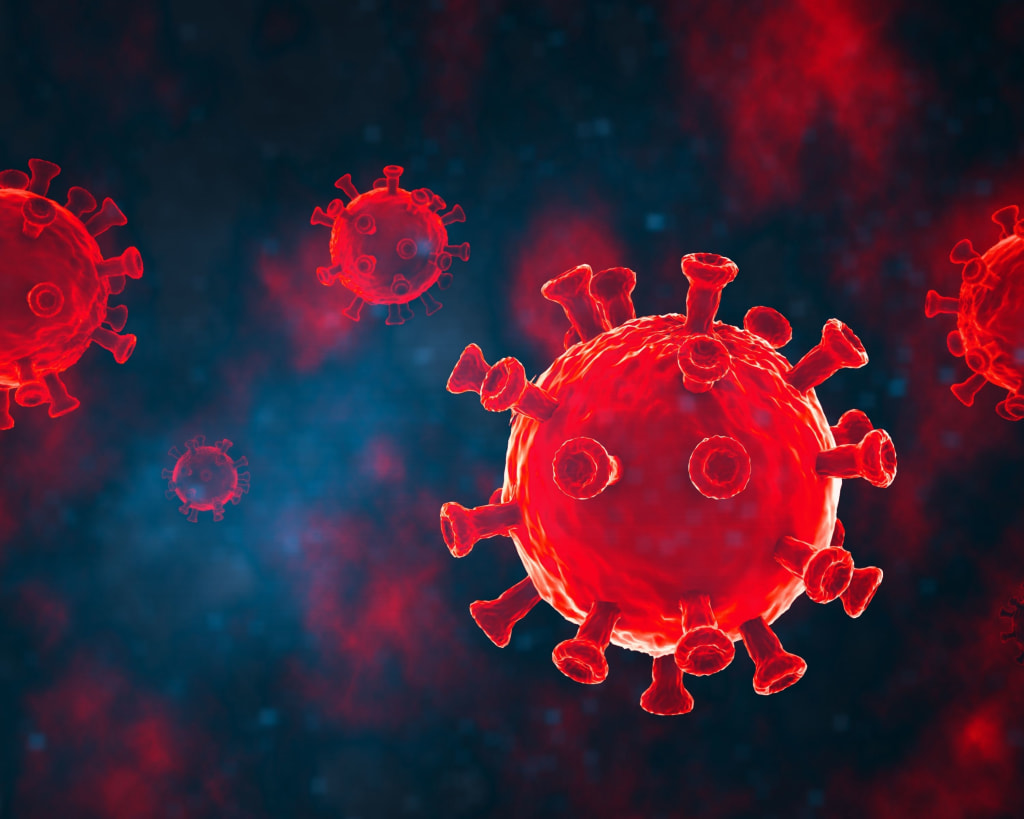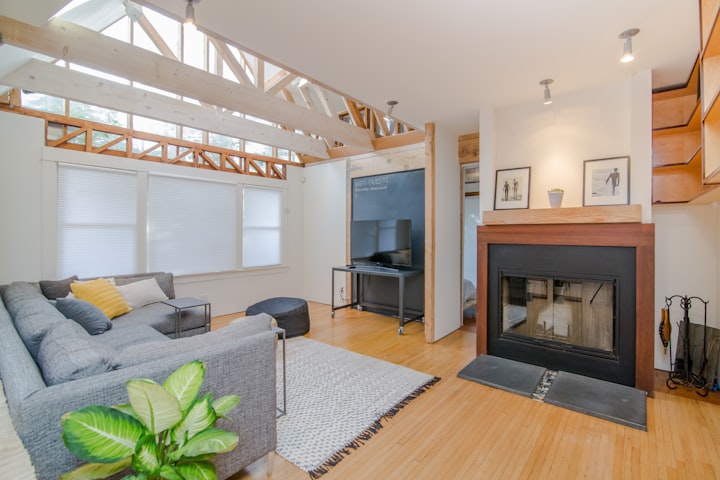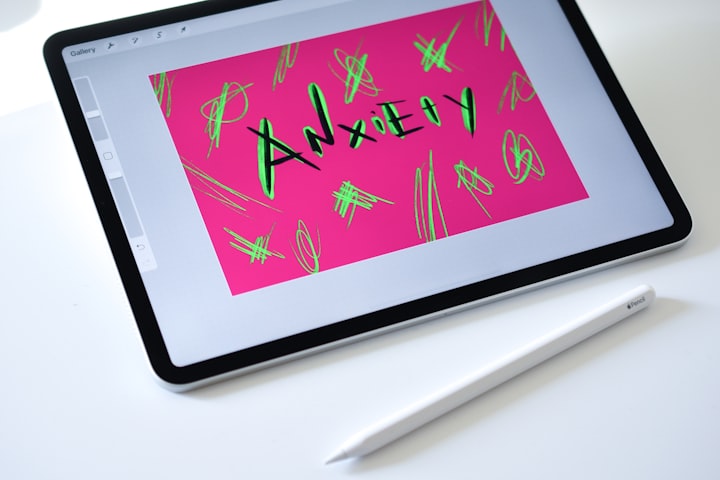CORONAVIRUS: talking about a revolution - 3 significant ways in which our lives are changing forever
Looking beyond lockdown....

2020. Year of global pandemic and lockdown. A period that will be studied by future generations as the year that the world paused. The year when life as we knew it – as we all knew it, regardless of race, creed or colour - suddenly halted. If the world were a dissected tree trunk, the year 2020 would appear in stark contrast to those preceding – it would be an odd shape, a strange colour, a visual anomaly that would clearly mark a cataclysmic event in the world’s history.
As many countries teeter on the brink of second wave woes with further lockdowns looming, it is becoming all too clear that the raging tempest in which we currently find ourselves is here to stay for the foreseeable and will undoubtedly send strong ripples of change far into the future.
Will the change be for the better?
What path might the world take as a consequence of our current experiences?
Of course only history can be the judge but in this piece I ponder on the future and how it might be different as a result of our present. Could our current experiences be the seed of what will become referred to, in many years to come, as a revolution?
Have you ever wondered what it feels like to live through a revolution?
Many definitions of revolution rely on political unrest and turbulent uprising. However a revolution can also be defined as an event – something so tumultuous and transformative that it alters the course of a nation or even the world. Revolutions offer the opportunity for us to move through a gateway from one mode of life to another, to force us to see the world with new eyes - they form the hooks within history upon which other things hang, the chapter titles in books that will be studied by generations that are yet to be born.
A brief disclaimer about this piece - I completely appreciate that I am writing against a grim backdrop of anguish and tragedy as COVID has destroyed not only health but livelihoods, leaving death and destruction in its wake. I consider our family to be incredibly fortunate to have avoided, to date, anything so extreme and we have not suffered medically from COVID. However, we are not completely unscathed. My husband, Simon, is a conductor and has not worked since February with little on the horizon as he watches, with great sorrow, the slow death of not only his beloved industry but the wider Arts sector. Our son, a theatre-worker, remains in employment but his career hangs by the finest of furlough threads with redundancy looming large in his near-future. Our daughter, whose hopes and aspirations lay in the world of musical theatre, is spending her days at the crossroads of reflection and consideration of her future – a bleak tale that is being replicated by millions of young people across the world. However, despite the darkness and gloom, I feel strongly that we must find light and hope for the future.
So, dear reader, on we go……
1) Revolution: Values
The sound of morning birdsong, the breath-taking range of colours in the garden, the sight of squirrels leaping across grass, the feel of sun on skin, the satisfaction of cooking a meal from scratch, the aroma of freshly baked banana bread, screaming with laughter during a (virtual) family quiz –these normal, ordinary, routine, mundane events that have always been available to experience have suddenly provided immeasurable joy to so many during lockdown. In a time when the cacophonous backdrop of living has been temporarily muted and we have been gifted an extended sabbatical from normal life, it seems that the world has started spinning a little slower and we have taken the time to notice….well everything. I am reminded of those wonderful lines from the poem ‘Leisure’ by W.H. Davies:
What is this life if, full of care,
We have no time to stand and stare.
Whether this experience is described as ‘going back to basics’, ‘valuing the simple things in life’ or, in the words of Mr Davies, having the ‘time to stand and stare’ it has been, for me personally, a revelation. If this effect is cascaded upwards to the national level, it may be said that in the depths of lockdown we witnessed the blossoming of a collective motivation to share, help and volunteer along streets and avenues that somehow began to feel kinder, more open, more community-spirited. Globally, the impact has been seismic. Outpourings of appreciation for keyworkers have broken common ground across the world, a global and harmonious chorus of gratitude for those that have not only ensured that vital supply chains have remained greased, but have kept us safe and saved lives. Meanwhile a distinct absence, for at least a few weeks, of violence, killing and war from our COVID-obsessed news bulletins has tantalised us with glimpses of what could be - a gentler, kinder universal existence, united in a sense of togetherness as we battle a common enemy. There haven’t been many times in the world’s history when this has been the case…..
However, this time has also provided a backdrop against which the mismatch between what people do and how they are valued has been painfully magnified, whilst the sprawling inequities within society have been laid bare.
A dark day…..
Let’s turn to the tragic circumstances of 25 May 2020 which saw the untimely death of George Floyd, the day that the ‘Black Lives Matters’ movement became recognised on the global stage. Will this day be one that will be remembered as a destiny-changer? Will it be discussed in sentences alongside other transformational events in history - the death of Archduke Franz Ferdinand, the tearing down of the Berlin Wall or the day that Rosa Parks refused to relinquish her seat on a Montgomery bus? Why, you may ask, is the death of George Floyd so significant to this post about a pandemic and, moreover, why did it have such an extreme global reaction, clearly upending the US and sending protests raging across the world? When there have been so many similar abhorrent happenings during recent years, why does the world care so much about George Floyd?
In order to answer this question we must simply look at the prevailing conditions in which his death occurred – a perfect cocktail of global pain, suffering, anxiety and fear swirled with unifying gratitude, kindness and togetherness with, for good measure, all the time in the world thrown in.
We had the time to stand and stare.

Without the global pandemic, George Floyd’s death would have undoubtedly sparked local outrage and justified indignation – furious sparks that would have threatened to take hold but never quite reaching the required heat. However, COVID-19 was the oxygen that was needed to fan the flames, allowing the fire to spread with an intensity not witnessed before. I wonder, in years to come, if the name George Floyd will be synonymous with clear and deliberate steps towards the dismantling of structural racism? Will his descendants take genuine comfort that he did not die in vain?
Will our changing values throughout this time be responsible for a revolution?
2) Revolution: Work
Becoming more human....
You may remember a hilarious video that went viral in 2017 of Prof Robert Kelly being interviewed live on BBC when his toddler daughter delightfully danced into his office, swiftly followed by her baby brother trundling along in his baby-walker, hotly pursued by their frantic, deeply stressed mother who scrabbled to remove them from the scene. Oh, how we laughed and sympathised deeply in equal measures as the tension that so many of us have experienced between the workplace and home clashed mercilessly in front of the world’s eyes.
Who would have thought that, only three years on, Prof Kelly’s experience would become reality for millions across the globe as multitudes now wrestle to balance remote working with domestic arrangements. Although these circumstances have been immensely challenging for many, the wider effect has been simply joyous. Until now, the door of the workplace has traditionally been the place where we have shed all evidence of home-life, vulnerabilities, even emotions, replacing them with the sterile clothes of professionalism and efficiency. However, the recent sight of a member of the UK’s parliament cradling his newborn baby in his arms as he attended the Education Select Committee is surely a vivid visual representation of just how far we have travelled in a matter of mere months. Is there not also something bizarrely grounding and incredibly levelling about snatching glimpses of the domestic arrangements of those who, to date, have only ever existed in pristine executive suites or luxurious corner offices? It reminds us that we are all human with a life beyond the role.
Without doubt, professional life has received a much-needed, long-overdue hypodermic injection of compassion, empathy and self-awareness – it has become more human and, I have no doubt, will be all the better for it. Talk of parenting and other caring responsibilities has been thrust and genuinely integrated into the corporate vernacular. Gone are the days - and I remember them well - when even in ‘family friendly’ work environments, chat of children was reserved for pre-meeting small talk. I can’t ever remember a time when it was truly acceptable – let alone comfortable - for a mother or father to leave a meeting, citing the need to school their children. What I do remember, as a working mother, is stating that I had an ‘appointment’ to attend after work rather than admit that I needed to get away from the office on time in order to collect my children from their after-school club. Despite many workplaces claiming to be ‘family friendly’ prior to this time, the lockdown has done more for the empowerment of working parents than has been achieved throughout 25 years of family-friendly flexible working policies.
Remote Working
I have always revelled in the opportunity to work from home and have done so, sporadically, for approximately 23 years since the birth of my first child. Some of my most productive working days have been spent in the comfort of my own home and yet it has never quite become the accepted norm. Never outwardly questioned ……but somehow subconsciously frowned upon, with my overwhelming sense being that there is an unspoken suspicion that remote working equates to ‘swinging the lead’. How the tables have now turned on workplace norms as the ability to work from home has literally saved innumerable organisations from going bust - that which was frowned upon has become the saviour.

Morgan Stanley, Barclays and Nationwide are all global goliaths that are already recognising that a return to ‘normalcy’ may not necessarily mean a return to the traditional office environment. A recent study carried out by Metova shows that 48% of respondents claim to be more productive working from home with 57% preferring to work remotely in the future. Those surveyed said that their productivity was as a result of time saved from commuting (71%), fewer distractions from co-workers (61%), and fewer meetings (39%).
I’m most definitely one of the 57% as I enjoy working from home immensely - I don’t miss the hours commuting or spending a significant part of my salary on travel costs (on average I drive approximately 2200 miles per month in my commute), I enjoy eating lunch with my husband, I relish a bit of extra time in bed in the mornings, I adore being able to stroke my beloved pooch during long meetings, and I love the fact that my journey home is literally three steps from one room to the next. The dreaded ‘Monday morning blues’ have all but disappeared, I don’t miss wearing heels or dressing ‘professionally’ and I have refocussed the extra time that I now have into creative pursuits such as writing, leading me to feeling more fulfilled and satisfied than ever before. The coveted fantasy of a happy work-life balance seems to be materialising before my very eyes. All of this has led me to being as – if not more – productive and that, dear reader, is the bottom line that cannot be ignored. Of course not all jobs can be successfully undertaken remotely and not everybody enjoys working from home…..but surely this period of time has provided the catalyst that was needed for businesses to recognise the clear benefits of remote working.

The contentment of workers is, of course, essential but in my mind this is not the most important development that lies ahead. Where I really feel the prospect of revolution sits is in the hope that this new flexibility, married with the newly-emerging workplace values, will positively feed the workplace equality agenda.
Unfortunately, we have become painfully aware of the devastating effect that COVID-19 has had on employment, but it has also become all too clear that women have been disproportionately affected during the pandemic. An article in the Harvard Business Review sets out the stark picture as it suggests “Our analysis shows that women’s jobs are 1.8 times more vulnerable to this crisis than men’s jobs: women make up 39% of global employment but account for 54% of overall job losses as of May 2020. At the same time, the burden of unpaid care, which has risen in the pandemic, falls disproportionately on women.” This is a bleak narrative that surely only fuels the inequities that already exist in our workplaces. However, could the remodelling of our workplace values, coupled with a newfound flexibility provide, in the long-term, the tool to start chipping away at the glass ceiling that restricts so many talented women from reaching their full potential? No longer required to beat men at their own game but rather changing the pitch upon which the game is played. I am reminded of a wonderful book that I recently read by Mary Portas called ‘Work Like A Woman: A Manifesto for Change” – a brilliant read for anybody, regardless of gender.
However, equality in the workplace is not only about women as there could be other winners in this scenario. Imagine, if you will, a time when men feel able to fulfil their potential as fathers, positively choosing time at home with children rather than bending to the pressure to conform to the alpha culture that has permeated so many workplaces until now.
In terms of the workplace, the Coronavirus pandemic is proving to be an event that is truly transformational – yes, a revolution by any definition.
3) Revolution: the way we live
Home is where the heart is....
I have heard many people, during the past months, reflecting on the effect that lockdown has had on their relationship with their home. Of course, it’s no surprise when we have, en masse, been forced into confinement. For my family and I, the effect has been seismic.
Until lockdown we have had what I would describe as a ‘like/dislike’ relationship with the house in which we live. Never as extreme as ‘love/hate’ but rather a bit of a benign, shrug of the shoulders type of thing. Our house has always been our base where we have eaten and slept, where we have gathered as a family not dissimilar to exhausted mountaineers at the Mount Everest Base Camp – a place to pause, rest and collect ourselves before continuing the expedition that is life. Although we have been incredibly happy as a family during the 20 years that we have lived within these walls, I’ve always felt a little envious when I hear others waxing lyrical about their home. As a family we have talked endlessly for many years about moving house – to somewhere more rural perhaps? To a location with more of a ‘community feel’, where the local butcher or café owner know our names and we can walk to an amazing little country pub. More light, more air, more space - just something ‘more us’, whatever that may mean. This type of talk has always felt a little disingenuous as our house would be seen as ideal by so many – a traditional, robust four bedroom semi in a quiet cul-de-sac in the ‘burbs’ with a huge back garden. However, without really understanding why, we have always felt just a little out of place within its walls – not quite squatters but with a definite interloper vibe. That is until now…… until we were forced to spend day upon day really living in it – eating, sleeping, working, resting, sheltering, playing, exercising. This time has led us to forge a much deeper, stronger link that has gone beyond the physical bricks and, for the first time, formed a mental link with our home – I think we have discovered its soul.
Well Chalky, that’s lovely – good on ya……but why should we care?
Well, dear reader, if this is our experience then, undoubtedly, it will also be the experience of many others.
The Chalks are about to start their own mini home revolution. Firstly a purge of the clutter and detritus that we have amassed over the years. This time has proved that we don’t need it and, if you believe that your environment is a direct expression of your emotional and psycho-spiritual state, then it could be a damaging force in our lives.
It’s time to rid ourselves of complexity and embrace a simpler existence.
Next a complete remodelling of our home, transforming our traditional lay-out into modern, open-plan spaces in which we can commune and relax more easily as a family, whilst also retaining some cosy, snug areas to retreat to when we truly need to take shelter. Space that is flexible, versatile, multi-functional and simple to use, an environment that is light, airy and fresh. Nooks in which to work and play and a garden that will be a genuine extension of our home as we truly value more the connection between inside and out. Lockdown has provided a microscope on the way in which we physically live our lives through which we have peered and scrutinised – we have found limitations and we are going to change them. I wonder how many other families are about to do the same?

I also wonder how many estate agents are feverishly revising marketing materials and how many housing developers are furiously amending housing plans to reflect our collective new needs? With lines blurring between home and work, doesn’t it follow that the ‘home office’ will rise up our housing wish-lists to become one of our top priorities, alongside the fantasy dream kitchen and spacious garage? Outside space will not only exist as a ‘nice to have’ but will become as important as the number of bedrooms on the floorplan – how many families that have been confined to flats or apartments will vow to never again live in a home without at least some outside space?
In terms of where we choose to live geographically, perhaps the change will be even more marked. Currently shackled to cities and major conurbations due to the need to commute for our work lives, will the rise of remote working result in our ability to relocate to rural areas? Furthermore, will Coronavirus finally be the death knell of the detested rush hour?
Hope for the environment....
Speaking of rush hour, this piece would not be complete without some recognition of the environmental impact that we have witnessed during the past few months. We have marvelled collectively at the sights that unfolded before us as the world continued to spin without our interference. Famous now are the images of the crystal clear canal waters of Venice and the sprawling Chinese cities that began to shed their smog-laden skies. My daughter and I were so inspired by the positive environmental effects of lockdown that we created a YouTube video called ‘Consciously Careless’ that shared our reflections through spoken word. Forgive my slight self-indulgence, dear reader, as I share some of those words in the hope that they capture some of what we were feeling:
As we open our eyes and glimpse the outside
We spot paw prints and tracks out there in our wide city streets
They emerge with hesitant grace
And silvery trails through clear waters chase
They steal our breath, this sight is so rare
Reclaiming their place in the world that we share.
As we open the door there’s something awry
For all that we hear is the gentle sigh
Of the breeze, peppered with rustling leaves
And song as birds through the air dart and weave
Whilst we’ve been trapped in our comfortable cage
Nature’s ensemble has taken the stage.
As we stumble outside, escape from our cell
We take a deep breath, there’s such a sweet smell and a fragrance
of freshness and sweetness and thus
It’s the essence, the scent of an absence of us.

This time in confinement has provided perhaps the harshest and starkest reminder that this world is not ours. We are simply caretakers, mere lodgers. Also isn’t it ironic – as Coronavirus has literally attacked and damaged our lungs, the world is suddenly able to breathe once more.
Surely this period has offered up the most irrevocable evidence that we are able to lessen the damage to our world, that it’s not too late for us to change our environmental course.
For that is the crux of the matter. We stand at a crossroads. Which way will we turn? We have important choices to make.
Choices
When things ‘return to normal’, what will our normal be? Will we simply reach for the comfort of what has been, that with which we are familiar? Will we retreat to our ingrained stereotypes and seek refuge behind our vile ‘isms’ because they are too difficult to dismantle? Will our newly-found sense of community dissolve into introverted selfishness? Will we allow our world to become smothered and poisoned once more or will we prioritise the wellbeing of future generations above our own material needs? Will we leave our ancestors ashamed, heads in hands lamenting the missed opportunity to evolve, or will they be in awe of the decisions that we make, the path that we take?
Although this potential revolution has been initiated by a tumultuous event, it will only gather speed if we choose to push it forward - and by ‘we’ I am not referring to faceless governments or nameless organisations. Yes, of course, they are important and have skin in the game. However, this is where we must recognise that ‘we’ refers to every single one of the 7.5 billion individuals that populate this earth. We are the we – you and I – and we must make our choices.
So these are my choices:
I choose to recognise the beauty of simple things and seek contentment in them;
I choose to appreciate my good health and the life that I have;
I choose to embrace the outdoors but also to try to protect it;
I choose to understand more about the inequities in our world and take conscious steps to not only ensure that I am not adding to them but that I am helping to dismantle them;
I choose to strive to be the best mother, wife, daughter, sister, aunty and friend that I can be;
I choose to take the time to stand and stare;
I choose to remember that life is incredibly fragile and that it’s my responsibility to be the best version of me, living my life to its full potential because others have tragically had that choice snatched from them.
What choices are you going to make?
Have you ever wondered what it’s like to live through a revolution?
Well, dear reader, it feels exactly like this.
Until next time,
Andrea
Andrea Chalk is creator of The Life Stash
About the Creator
Andrea Chalk
Hi. I'm an Academic Registrar for a UK University but arrived there following a degree in music and a first career in the arts. I have a newly found passion for writing and have recently created 'The Life Stash'.






Comments
There are no comments for this story
Be the first to respond and start the conversation.